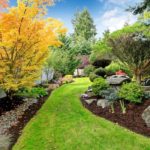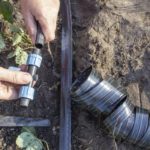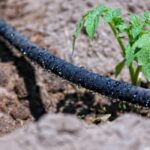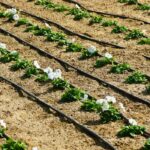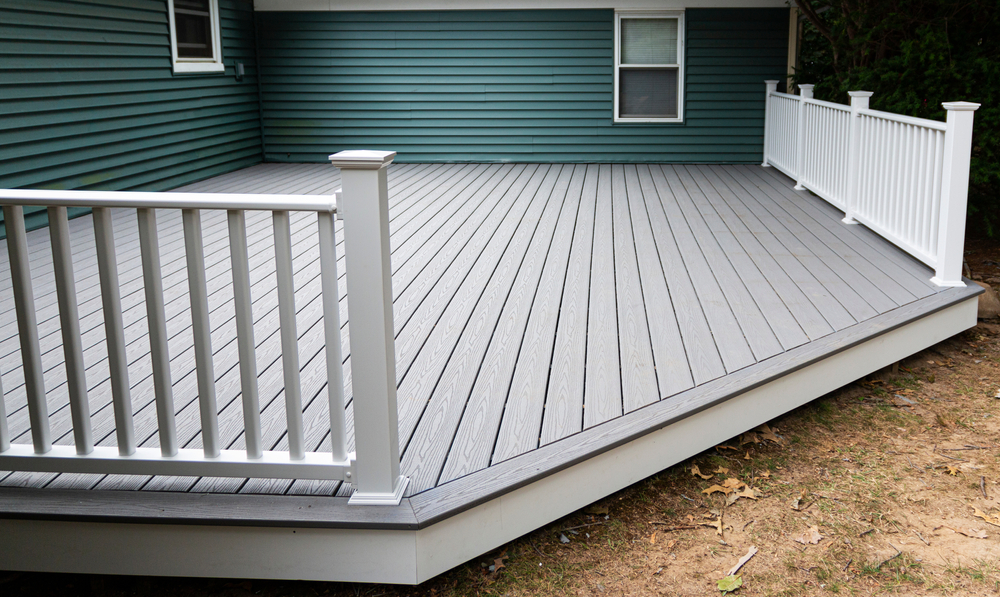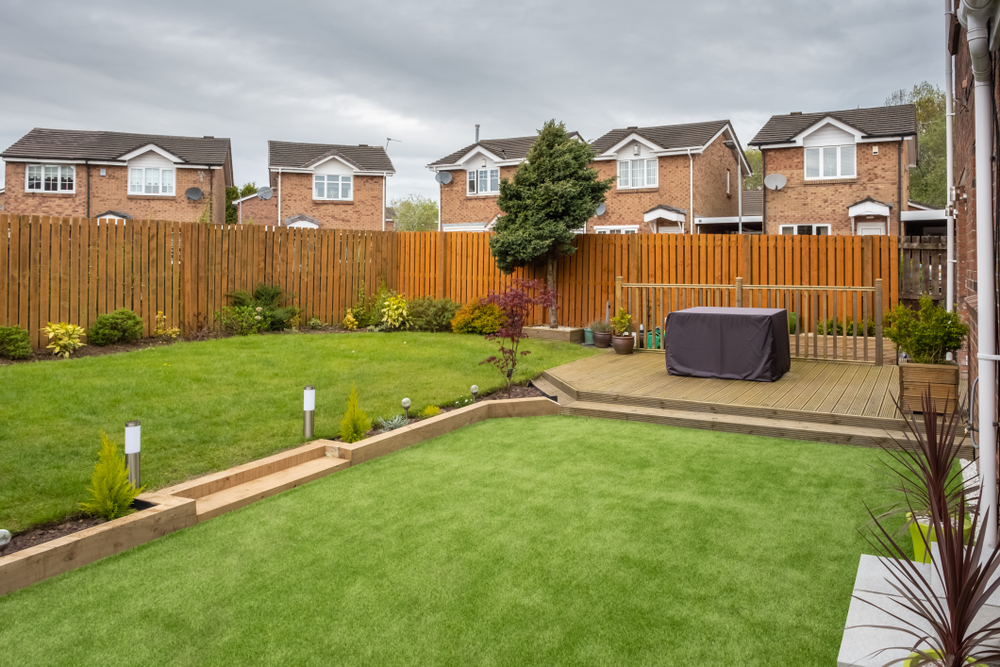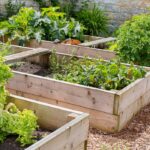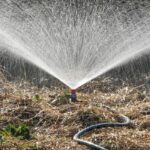There are a few different methods for watering the plants in your yard or garden, including the common choices of soaker hoses and sprinkler systems. But what’s the difference between these two methods? What are the pros and cons of each? And how do you decide which is better for your needs?
A soaker hose, which is less expensive and doesn’t require regular maintenance, is a good option for a small garden. However, a sprinkler system may be the more efficient choice if you have a large lawn, since they can be customized to suit various zones and provide a more even watering.
Let’s look at the purpose of both approaches to watering, including the pros and cons, and how to decide which is best for you. That way, you can make an informed decision about the method to use for your lawn and garden.
What’s the Purpose of a Soaker Hose?
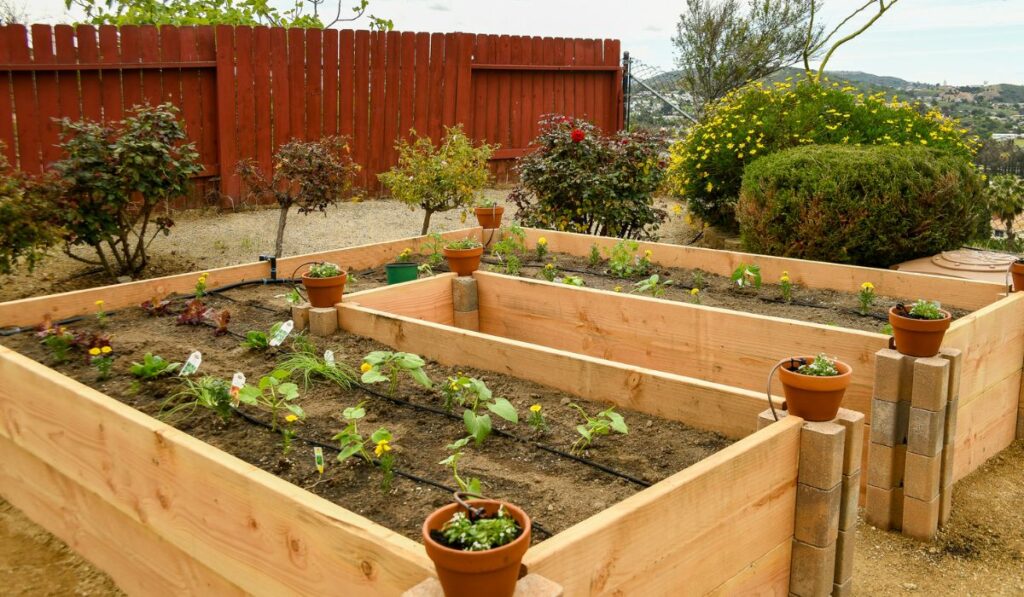
A soaker hose is a garden hose with small holes or pores along its length. When you turn it on, water seeps out of the pores and saturates the ground around the hose. This method can be a fairly efficient option because it minimizes evaporation and runoff.
Soaker hoses — like the LINEX 50-foot Soaker Hose (on Amazon) — are often used in raised beds or gardens because they can target the roots of the plants without wetting the leaves. They also work well for shrubs, bushes, and other plants that need deep watering.
The Pros of a Soaker Hose
One benefit of using a soaker hose is that the water seeps into the ground around the plants and can reach the roots more effectively, which is important since the roots are where most nutrients are absorbed.
Another pro is that soaker hoses are relatively inexpensive. You can find them at most hardware or home improvement stores. They’re also easy to use — simply attach the hose to a faucet and turn on the water.
Some other benefits of soaker hoses include:
- They can be used in various settings, such as raised beds, gardens, and lawns.
- They’re easy to store and take up less space than a sprinkler system.
- You can use them on drought-tolerant plants that don’t need as much water.
- They’re relatively unobtrusive. You can hide them among plants so they won’t be an eyesore in your garden or yard.
- They can be more efficient than other watering methods because the water seeps directly into the ground to the roots of the plants, minimizing evaporation and runoff.
- They help prevent fungal diseases that thrive in damp conditions because the leaves of the plants stay dry.
Among the most important benefits is that soaker hoses can help reduce water waste. According to the EPA, evaporation or runoff accounts for about 50% of the water wasted outdoors. By delivering water slowly and directly to plants’ roots, soaker hoses reduce water loss due to evaporation.
The Cons of a Soaker Hose
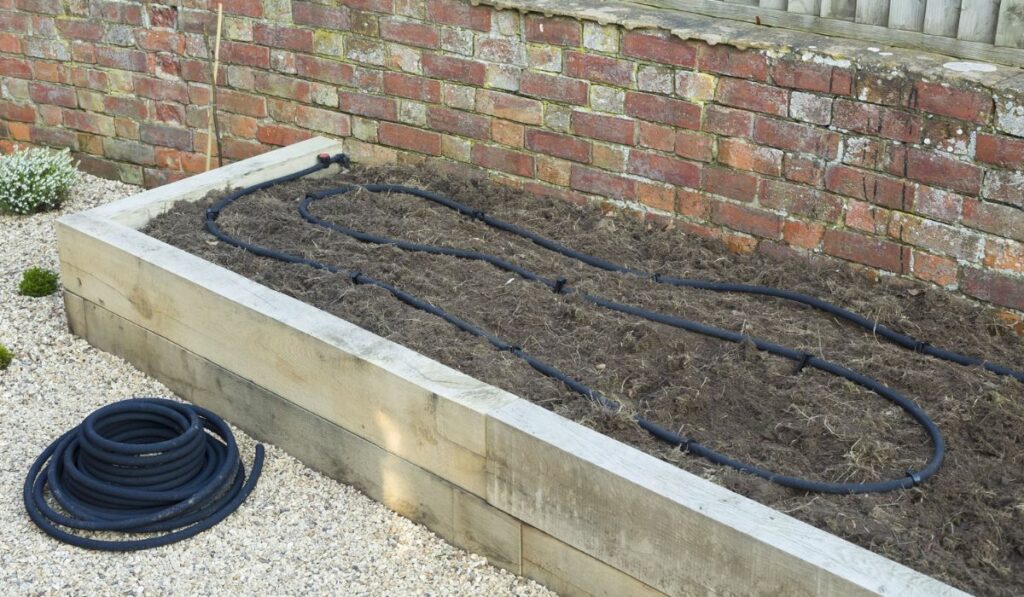
One downside to soaker hoses is that they can be pretty time-consuming to set up. You have to position them correctly; otherwise, water won’t seep into the ground properly, and your plants won’t get enough water.
Another downside is that soaker hoses can be less effective in hot, dry conditions because the water may evaporate before it can reach the plants’ roots. In these conditions, you may need to water more frequently or use a different method.
Other cons to consider are:
- If you have a large area to water, the hose can take a while to deliver enough water, and you may need to move it around to cover the entire area.
- Soaker hoses can also be hazardous if they’re not correctly positioned because water can pool on the ground, creating slip and fall risks. They can also create puddles that attract pests.
- A soaker hose may not function properly due to insufficient water pressure. You may need additional attachments to increase the water pressure.
- They may not reach all the plants in your garden or lawn if you have a large area to water.
- Soaker hoses can burst if left on for too long or if the water pressure is too high, damaging your plants and wasting water.
What’s the Purpose of a Sprinkler System?
A sprinkler system is a network of pipes and valves used to deliver water to a series of heads or nozzles. The most common type of sprinkler system is an automatic lawn irrigation system used to water lawns, gardens, and landscapes.
Sprinkler systems can save time and water by delivering the right amount of water to your plants. You can program them to run at certain times and for a specific duration to ensure your plants get the optimum amount of water.
You can use sprinkler systems in various settings, such as lawns, gardens, and agricultural fields.
Above-ground sprinkler systems consist of a series of hoses or pipes connected to a water source, such as a spigot or hose bib.
In-ground sprinkler systems like the Orbit 50021 (on Amazon) are more complex, consisting of a network of underground pipes connected to a water source and a control panel.
The Pros of a Sprinkler System
One of the biggest advantages of a sprinkler system is that it can save you time.
If you have a large lawn or garden, watering your plants with a soaker hose can take a very long time, depending on the size of your garden. A sprinkler system, meanwhile, can be set up to water your plants for a specific time, and it will turn off automatically.
Another advantage of a sprinkler system is the range of options available. You can find sprinkler heads that you can adjust to different angles and positions and customize the design to fit your needs. Sprinkler systems also come with various nozzle options, so you can choose the one that best suits your garden.
A few other pros of a sprinkler system include:
- You can find systems that fit your specific needs, such as those with timers, sensors, or automatic shut-off valves.
- You can customize the coverage area for each zone in your garden for more efficient watering.
- Sprinkler systems can be an efficient way to water large areas because water sprays from multiple heads or nozzles.
- Underground sprinkler systems are less likely to be damaged by lawnmowers or other yard equipment.
Finally, one of the most significant advantages of a sprinkler system is that it can increase the value of your home. A well-landscaped yard with a sprinkler system can add curb appeal and increase your home’s equity or resale value.
The Cons of a Sprinkler System
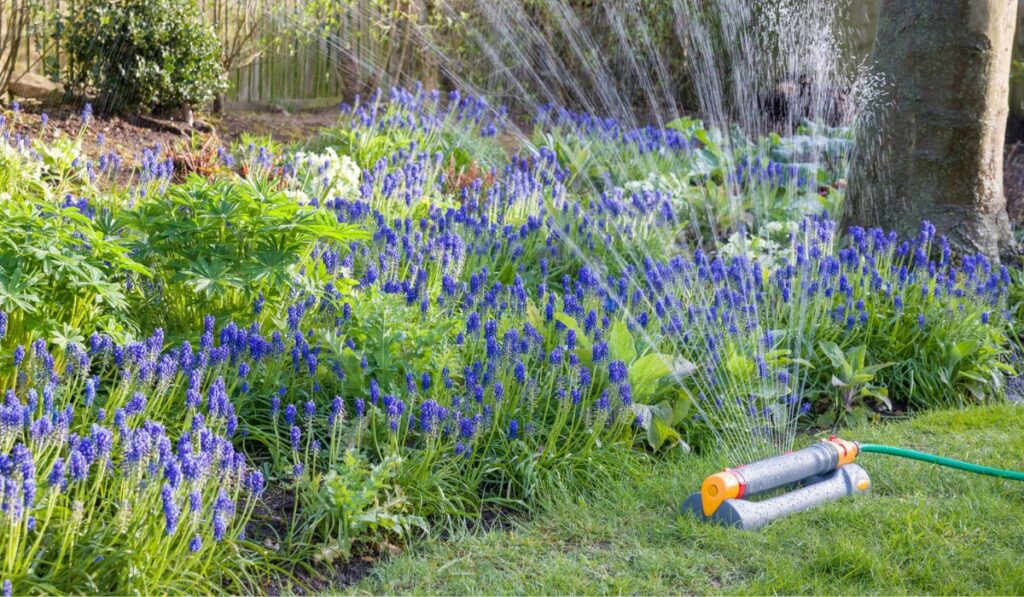
There are a few cons to consider with a sprinkler system. One of the main disadvantages is the initial cost. Unless you’re going the DIY route, sprinkler systems can be expensive to install. This is especially true if you have a large lawn or garden and want an underground system.
Sprinkler systems also require regular maintenance, such as checking for leaks and replacing broken or worn-out parts. If you’re not comfortable performing these tasks, you may need to hire a professional to do the work for you.
Other disadvantages of a sprinkler system include:
- Sprinkler heads or nozzles can become blocked with dirt or debris, reducing the system’s efficiency.
- Wind can blow water off course, wasting water and causing the system to work less efficiently.
- Sprinklers can waste water if they’re not properly maintained or if there are leaks in the system.
- Local water restrictions may limit how often or how long you can water your plants with a sprinkler system.
- Installation can disrupt use of your lawn or garden, especially if you need an underground system installed.
Finally, keep in mind that sprinkler systems are not drought-proof. Even with a timer and sensors, your system can use a lot of water, especially if you have a large lawn or garden. If water restrictions are in place, you may need to reduce the time your system is in use.
Deciding Which Method Is Right for You
The best way to decide if a soaker hose or sprinkler system suits you is to consider your specific needs. A soaker hose may be the best option if you have a small lawn or garden. They’re less expensive to install, and you won’t need to worry as much about regular maintenance.
However, a sprinkler system may be better if you have a large lawn or garden, since they can save you time, provide more even watering, and be customized to fit your specific needs. However, they can be expensive to install and do require regular maintenance.
Some additional considerations to keep in mind include:
- How much water your plants need
- The type of soil you have
- The size and layout of your lawn or garden
- Your budget
- Local water restrictions
- Your willingness to perform regular maintenance tasks
If you’re still unsure which option is right for you, consider speaking to a professional landscaper or gardener. And no matter which option you choose, follow any local water restrictions to help save water and avoid fines or penalties.

